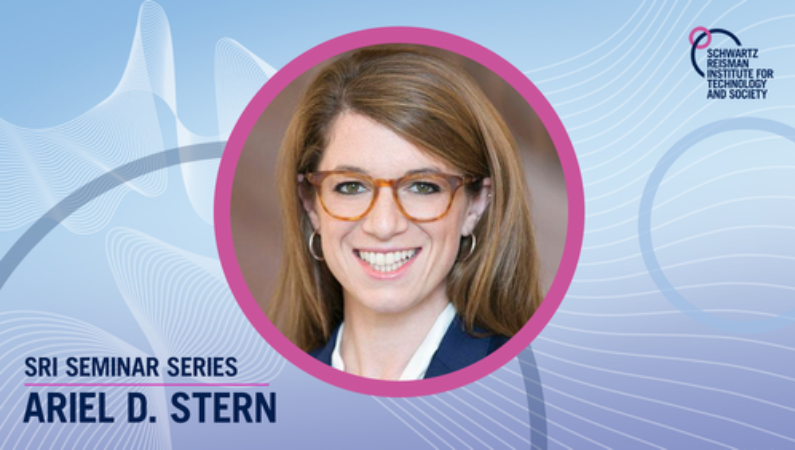

Our weekly SRI Seminar Series welcomes Ariel D. Stern, an associate professor of business administration in the Technology and Operations Management Unit at Harvard Business School. Stern’s research focuses on technology management and innovation in health care, the digital transformation of medical technology and health care delivery, and the policy and business questions raised by the growth of digital health and the digital transformation of medicine.
In this talk, Stern will explore how the rapid innovations of digital technology are changing definitions and approaches towards healthcare by practitioners, institutions, and users, and why these changes require new and innovative approaches towards policy and regulation.
“The digital revolution in health care: Challenges, opportunities, and the need for policy innovation”
New medical technologies have saved and improved millions of lives in recent decades. Yet the digital technologies that are transforming contemporary health care, such as digital medical devices, applications of medical software, and artificial intelligence tools to diagnose and treat patients would be unrecognizable to the 20th century architects of our regulatory and health care delivery institutions. For example, many digital health applications (apps) meet the formal definition of a medical device, yet their fully software-based nature means that many established practices for evaluating their safety and efficacy are mismatched to the dynamic nature of the apps themselves. The rapidly transforming scientific and technological foundations of medical invention, combined with the intense pace of innovation are thus increasingly mismatched to our existing institutional structures. This mismatch underlies many of today’s challenges in the commercialization of new products and creates a significant bottleneck to incorporating new innovations into care delivery. This talk will examine this mismatch by focusing on how the development and adoption of health care technology is shaped by the interaction between health care innovators, regulators, and our health care delivery institutions. The talk will also present policy and business model innovations that address some of the key challenges to technology adoption in this setting.
Ariel Dora Stern is the Poronui Associate Professor of Business Administration in the Technology and Operations Management Unit at Harvard Business School, where she teaches the MBA course “Transforming Health Care Delivery.” Stern’s research focuses on technology management and innovation in health care. Her projects consider the regulation, strategy, and economics of health care, with a focus on understanding the drivers of new product development among firms and the determinants of how new medical technologies are adopted and used in practice. She is a faculty affiliate of Ariadne Labs, a joint center for health systems innovation at Brigham and Women’s Hospital and Harvard T.H. Chan School of Public Health and the Harvard-MIT Center for Regulatory Science. Her research has been cited by Bloomberg, The New York Times, and National Public Radio.
Stern received her PhD from Harvard, where she was a National Bureau of Economic Research Predoctoral Fellow in the Economics of Health and Aging. She holds an undergraduate degree in economics from Dartmouth College, where she was a Presidential Scholar and a two-time U.S. national collegiate figure skating champion. From 2020-2021, Stern served as the Director for International Health Care Economics at the Health Innovation Hub, the independent think tank of the German Federal Ministry of Health. She is a member of the Scientific Advisory Board of the German Society for Digital Medicine and advises health care start-ups.
To register for the event, visit the official event page.
The SRI Seminar Series brings together the Schwartz Reisman community and beyond for a robust exchange of ideas that advance scholarship at the intersection of technology and society. Seminars are led by a leading or emerging scholar and feature extensive discussion.
Each week, a featured speaker will present for 45 minutes, followed by an open discussion. Registered attendees will be emailed a Zoom link before the event begins. The event will be recorded and posted online.